|
Here at Re:Wild, our overarching aim is to help our clients re:set, re:connect and re:build to live less-processed, slightly 'wilder' lives. The idea behind the “Re:Wilding a Welshman” blog is to Re:educate ourselves (and others along the way) on how to be ethical omnivores by shopping better, whilst shining a spotlight on great small-scale producers who are farming better. We want to help people re:connect with what nature intended, specifically by improving people's understanding of:
Why I love berries As my followers know, I am all about quality nutrients. But, I am also a huge advocate of low sugar diets, which somewhat limits my fruit intake. Enter berries! Berries are a staple for almost everyone who follows a low sugar or low carb lifestyle because they’re packed with flavour, and are naturally sweet without being sugar laden, (and in particular, they’re low in fructose which is what really matters to most people). You can read more about sugar and how to reduce your intake here. In this way, berries are my fruit of choice, and I eat blueberries, raspberries are strawberries when they’re in season, typically with Yogurt and nuts for dessert. Raspberries are also high in antioxidants that can protect cells from damage by free radicals. They are a great source of fibre, packing 8 grams per 1-cup (123-gram) serving, or 32% and 21% of the RDI for women and men, respectively. They provide more than half of the RDI for vitamin C; potassium, essential to heart function, and proven to lower blood pressure. They have omega-3 fatty acids, manganese, which is necessary for healthy bones and skin and helps regulate blood sugar. Meet the farmers Richard and Jo (along with Nelson, their beautiful Border Collie dog) are small scale organic farmers, delivering fresh produce to locals and selling directly from their farm gate. With this model, their produce is always seasonal and attracts low food miles by default. They also have an obvious love and respect for the land, which made them the perfect candidates for me to pay them a Re:Wilding visit so that my family could learn more about this style of farming. What makes their approach to farming different to ‘big ag’ style farming? The answer to this question lies buried in the story of their romance! Richard (British born) and Jo (an Aussie) were living and working in very stressful jobs in London, but one day stumbled across the opportunity to mix things up by house sitting in France. They packed up their lives, jumped in the car, and drove across the Channel. Here, they fell in love with the French countryside, the people, the food, the lifestyle and especially the way that local people grew their food and gardens – in the typical ‘potager’ style. What is a potager? For those who may never have heard this term before, a potager is a French-style ‘kitchen garden’, where vegetables, flowers, and herbs coexist. They’re typically very formal, organised and structured, and also very visually appealing. Jo and Richard learnt this style, and brought it with them when they emigrated to Australia. Growing flowers alongside vegetable offers many benefits beyond simply adding beauty. Flowers can be used in companion planting to help deter pests and attract beneficial insects, such as pollinators. Upon entering Richard and Jo’s magical garden, you instantly realise this isn’t “just about the produce”. The giant sunflowers happily greet you, and there is a generous mix of annuals and perennials, edibles and florals. You might ask why – from an economical perspective – a producer would take up valuable land with something as indulgent as roses and other florals. Aside from the fact that this garden is BOTH a business and a labour of love, raspberries (along with blackberries and strawberries) are all members of the Rosacea Family, so the roses in the garden aren’t only for show, they also serve as an indicator: if aphids or another ill befalls the roses, you can be sure that the raspberries might be affected next, and you can intervene before that happens. There are also many varieties of tomatoes, apples, cucumbers, rhubarb, potatoes, lettuce and indigenous and native foods (like Midyim berries), all growing in beautiful garden beds. “It’s not just about growing raspberries and other produce, it’s about the balance to be achieved between, the satisfaction in cultivating real food and the change it can make to people’s lives in our community.” - Richard Better farming = better produce, fewer pesticides and a smaller ‘footprint’. Jo and Richard have owned their farm since 2014, when they bought the property off Gumtree! However, they didn’t dive straight in. They approached with curiosity. They took a year to watch the natural ebb and flow and the changing seasons. They took the time to record the rain fall, to see where the shadows from the surrounding trees fell, where the sun shone most, which direction the winds came from and how the seasons affected the growth of plants. They learnt how to build fences, how to cut strainer posts, how to tie fence wire - both with the help of new friends and YouTube. Essentially, they took time to learn about their land so they could work WITH it, not against it. They also learnt many complexities of commercial growing very quickly. For example, they first tried to sell their potatoes having given them a good brush to get most of the dirt off, but were told by the retailer that customers wanted the potatoes to be scrubbed clean. So they laboured to brush all of the dirt off. Then, they tried selling the same very clean potatoes to the local wholefoods store, who asked them to leave some dirt on the potatoes because this helped them stay fresher for longer! This is another example of how consumers have become so far removed from the realities of the food chain, that we’ve ended up “cleaning” a natural and harmless preservative off them. By chance, Richard and Jo bought a couple of raspberry plants, since they need a chill factor (we get short crisp winters here), the sun (when it shines here - it can get hot) and low humidity (we are blessed with a very temperate climate), and we’re only about 20 minutes’ drive from the coast, so we don't get extreme humidity. The test raspberries were successful, and they planned to go all in with a big raspberry production. The entire lower paddock was planned to be trellised and planted out with raspberries. Alas, Richard was diagnosed with Parkinson’s Disease, which was a huge blow. Determined to make their dream a reality, they put on their raspberry-tinted glasses and kept going, just on a smaller scale. They sourced about 400 raspberry canes from Tasmania and got planting. "We just want to supply our community with good, healthy food, which hasn’t travelled far to get from our gate to your plate. Why are we called Eight80 Fresh? Our house number is 880 and we just thought - it’s where we live and Fresh is what we grow." - Jo “But organic berries are so flipping expensive and I want to eat berries ALL YEAR round!” I hear you. Organic berries are spenny. 125g of fresh organic blueberries at an Aussie supermarket sets you back nearly $4, whereas non-organic are only $3. Meanwhile, 500g of frozen non-organic blueberries cost only $4. This makes them $31.20, $24 and $8 per kilo, respectively. I am a huge advocate for fresh, locally sourced produce, but I am also a realist, especially given how many families are struggling to put food (let alone good quality, healthy, organic food!) on their tables this year. Let’s get one thing straight: full tummies are the first priority. If you’re a parent with finite resources and have three ravenous teenagers to feed, I totally get it. You need bulk, and you want it to be healthy. If frozen is what you can afford, and it means there are a few less processed foods in your trolley, then go ahead! You put those frozen berries in your basket, and you should feel GREAT about your choice. As with everything that I do, I encourage people to aim for progress over perfection. Here is my personal stance:
Being a health conscious and ethical omnivore isn’t about perfection, but progress towards a happier and healthier life for ourselves, our farmers and our land. I started this journey to educate myself and my family about the food chain so that we can make better choices, and to see if I was at peace with the produce that I consume, where it comes from and the farmers who grew it. My trip to Eight80 Fresh taught me so much, and has especially spurred an interest in the potager style of gardening. After seeing how much time, effort, risk and love goes into growing these beautiful berries, and learning about the complexities of small scale organic farming, I’ll never take my berries for granted again! If you’d love to learn more about Jo, Richard, Nelson and their farm, check them out on Instagram @eight80fresh Let me know what you think below! - JC
0 Comments
Leave a Reply. |
AuthorHere at Re:Wild With JC, our overarching aim is to help our clients re:set, re:connect and re:build to live less-processed, slightly 'wilder' lives. ArchivesCategories |
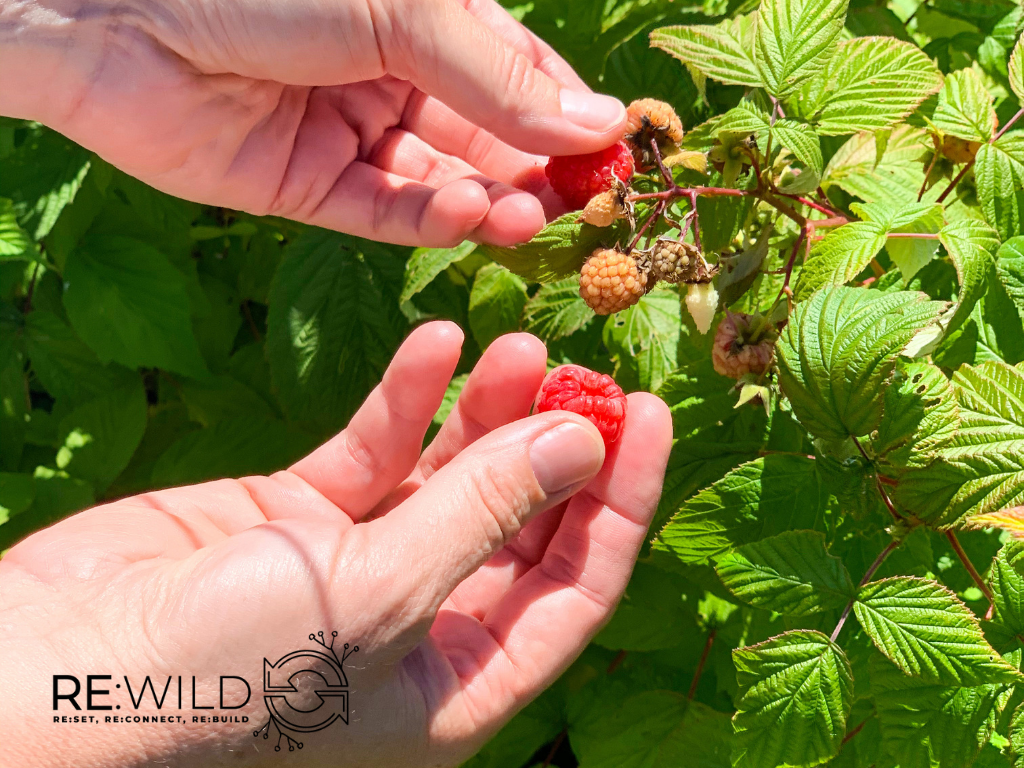
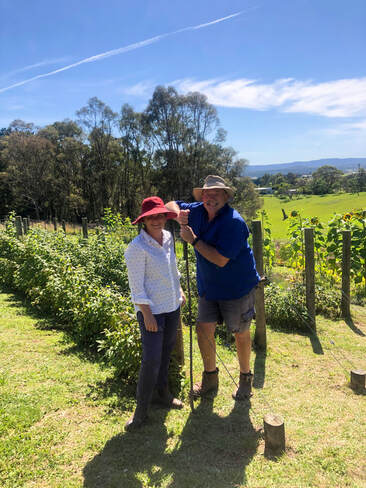
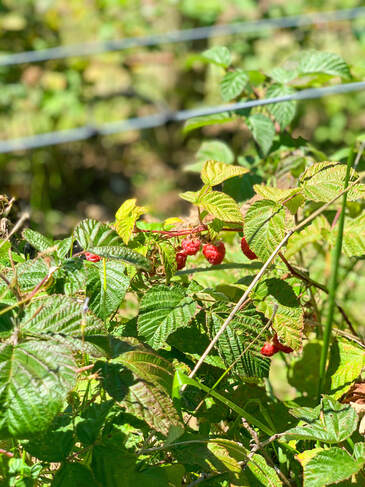
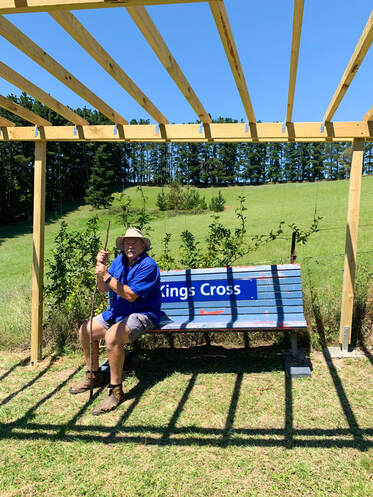
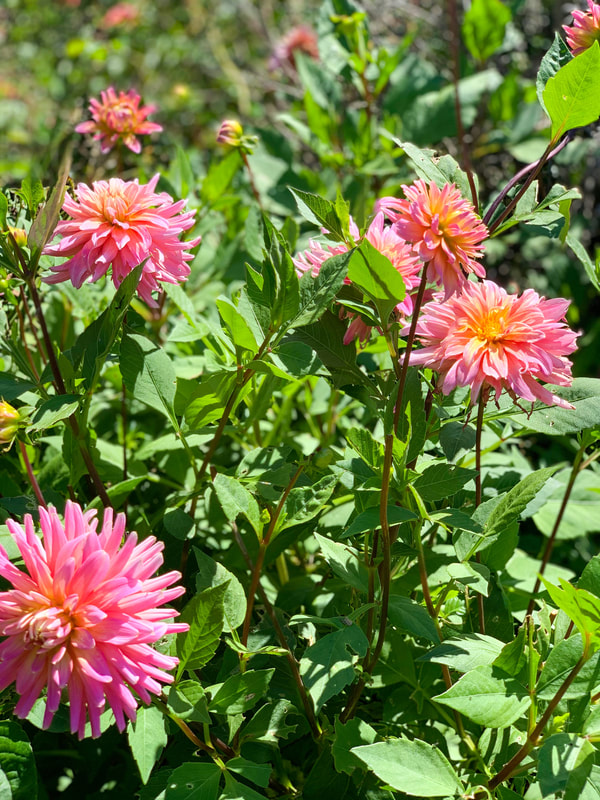
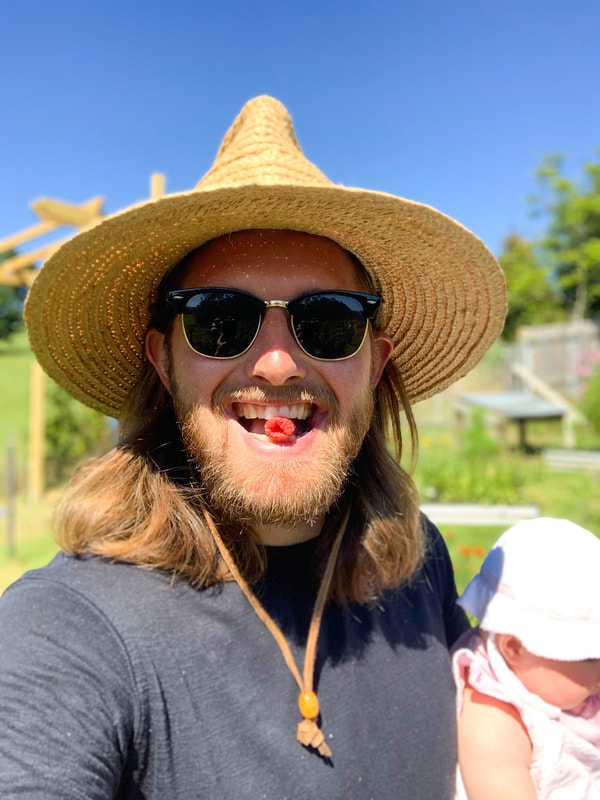
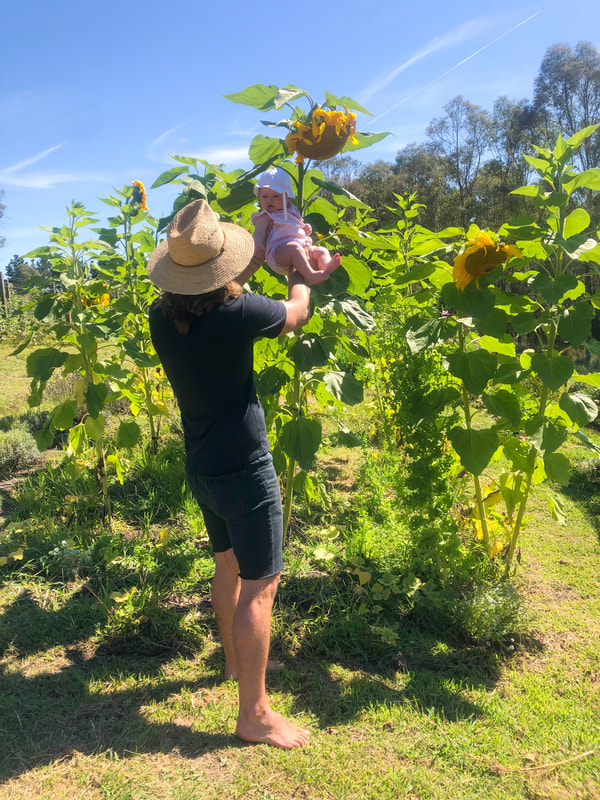
 RSS Feed
RSS Feed
